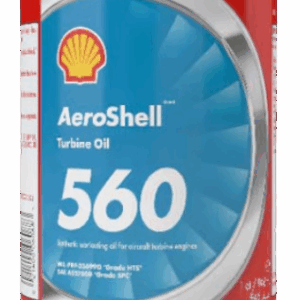ASTO 500
A 5 mm²/s synthetic hindered ester oil with balanced additives for improved thermal and oxidation stability, and metal passivation, suitable for civil or military aviation engine and accessories, or industrial turbines.

Features and benefits
Reduced maintenance costs
Versatile applications
Excellent elastomer compatibility
Specifications & approvals
| Country / OEM | Specification |
|---|---|
| United States | MIL-PRF-23699G Grade STD |
| SAE | AS5780B Grade SPC |
| British | DEF STAN 91-101 Grade OX-27 |
| French | DCSEA 299/A |
| NATO Code | O-156 |
| Joint Service Designation | OX-27 |
The TDS and MSDS are in English, but you can find these documents for other countries in the Shell EPC area
.
Applications
AeroShell Turbine Oil 500 was developed essentially to meet the requirements of Pratt & Whitney 521 Type II and MIL-L-23699 specifications and is entirely suitable for most civil and military engines requiring this class of lubricant.
With the advent of the new civil turbine oil specification, SAE AS5780, which has more stringent requirements than the military specification MIL-PRF-23699, AeroShell Turbine Oil 500 was approved as a SPC (Standard Performance Capability) oil.
AeroShell Turbine Oil 500 is approved for use in a wide range of turbine engines as well as the majority of accessories.
AeroShell Turbine Oil 500 contains a synthetic ester oil and should not be used in contact with incompatible seal materials and it also affects some paints and plastics.
Health, Safety and Environment
-
Health and Safety
- This product is unlikely to present any significant health or safety hazard when properly used in the recommended application and good standards of personal hygiene are maintained.
- Avoid contact with skin. Use impervious gloves with used oil. After skin contact, wash immediately with soap and water.
- Guidance on Health and Safety is available on the appropriate Safety Data Sheet, which can be obtained from https://www.epc.shell.com/
Protect the Environment
- Take used oil to an authorised collection point. Do not discharge into drains, soil or water.
Additional information
Advice
- Advice on applications not covered here may be obtained from your Shell representative.
Get in touch with us
We’re here to assist you with any inquiries or support you may need
Typical Physical Characteristics
| Properties | Method | MIL-PRF-23699G Grade STD | Typical |
|---|---|---|---|
| Oil type | – | Synthetic ester | Synthetic ester |
| Kinematic viscosity @100°C mm²/s | ASTM D445 | 4.90 to 5.40 | 5.11 |
| Kinematic viscosity @40°C mm²/s | ASTM D445 | 23.0 min | 25.4 |
| Kinematic viscosity @-40°C mm²/s | ASTM D2532 | 13 000 max | 9 215 |
| Flashpoint (Cleveland Open Cup) °C | ASTM D92 | 246 min | 264 |
| Pour Point °C | ASTM D97 | -54 max | <-54 |
| Total Acidity mgKOH/g | SAE-ARP-5088 | 1.00 max | 0.11 |
| Evaporation loss (6.5 hrs) @204°C % m | ASTM D972 | 10 max | 3 |
| Foaming tendency ml | ASTM D892 | Must pass | Passes |
| Thermal Stability / Corrosivity 96 hrs – metal weight change, mg/cm | FED-STD-791 M.3411 | ±4.0 max | Passes |
| Thermal Stability / Corrosivity 96 hrs – viscosity change, % | FED-STD-791 M.3411 | 5.0 max | 1.42 |
| Thermal Stability / Corrosivity 96 hrs – Total Acid Number Change, mgKOH/g | FED-STD-791 M.3411 | 6.0 max | 1.9 |
| Ryder Gear Test, Relative Rating Hercolube A, % | FED-STD-791 M.6508 | 102 min | Passes |
| Bearing Test Rig Type 1 1/2 conditions – Overall deposit demerit rating, 100hrs | FED-STD-791 M.3410 | 80 max | Passes |
| Bearing Test Rig Type 1 1/2 conditions – viscosity change @40°C, % | FED-STD-791 M.3410 | -5 to +30 | Passes |
| Bearing Test Rig Type 1 1/2 conditions – Total acid number change, mgKOH/g | FED-STD-791 M.3410 | 2 max | Passes |
| Bearing Test Rig Type 1 1/2 conditions – filter deposits, g | FED-STD-791 M.3410 | 3.0 max | Passes |
| Trace metal content | ASTM D5185 or D6595 | Must pass | Passes |
| Sediment mg/l | FED-STD-791 M.3101 | Must pass | 0.68 |
These characteristics are typical of current production. Whilst future production will conform to Shell’s specification, variations in these characteristics may occur.



